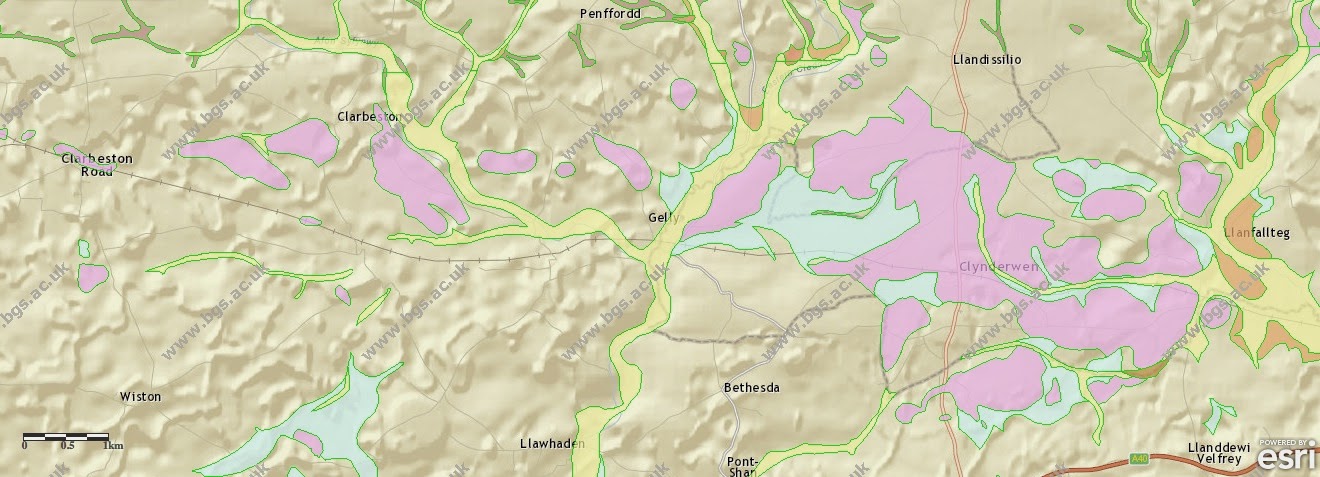How much do we know about Stonehenge? Less than we think. And what has Stonehenge got to do with the Ice Age? More than we might think. This blog is mostly devoted to the problems of where the Stonehenge bluestones came from, and how they got from their source areas to the monument. Now and then I will muse on related Stonehenge topics which have an Ice Age dimension...
THE BOOK
Some of the ideas discussed in this blog are published in my new book called "The Stonehenge Bluestones" -- available by post and through good bookshops everywhere. Bad bookshops might not have it....
To order, click HERE
Some of the ideas discussed in this blog are published in my new book called "The Stonehenge Bluestones" -- available by post and through good bookshops everywhere. Bad bookshops might not have it....
To order, click HERE
Saturday, 20 December 2014
Fluvio-glacial gravels around Clarbeston and Clynderwen
In addition to the patchy spread of fluvio-glacial gravels in the Rosebush - Llangolman area, there is an even more extensive spread some miles further south, in the vicinity of Clarbeston Road, Clarbeston and Clynderwen.
I recall doing some mapping in this area more than 40 years ago, and at that time there were a few small private gravel pits where exposures could be seen. At the time I was in a hurry, and somewhat naive -- I wish I had kept better field notes!
These gravels are spread across the landscape, so they are not fluvial gravels dating from interglacial phases -- they must, I think, be linked to the Anglian Glaciation. The same must be true of the associated till deposits mapped by the GS surveyors. Sid Howells has done some work on these and other gravels -- I look forward to comparing notes with him.
Subscribe to:
Post Comments (Atom)

No comments:
Post a Comment